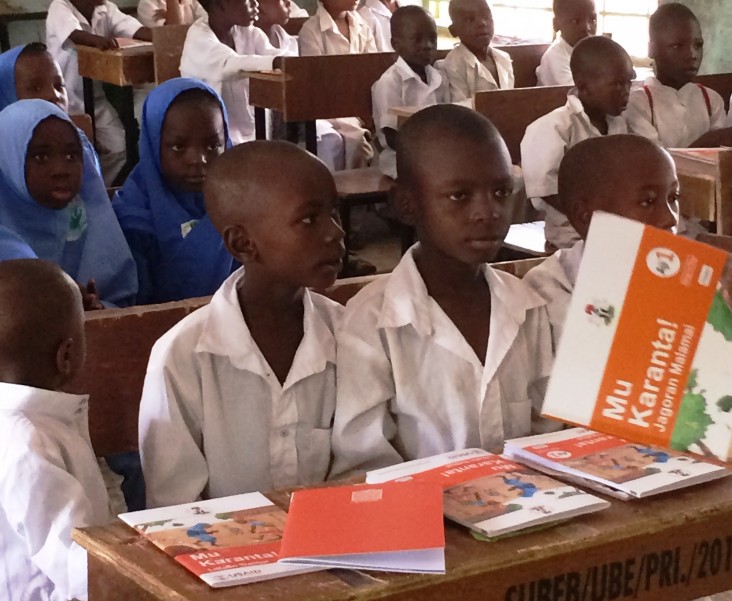Tears streaming down his brown little cheeks, twitching, turning and itching to stand up, Somto absolutely refuses to do his homework.
“I want to play,” the two year old tells his mother who is insistent that he finishes his homework of identifying one through to 10.
“I want to play,” Somto’s cries gets louder. And then a power struggle ensues.
“No, you must finish your homework,” his mum says as she tries every trick to get him to identify numbers 1 – 10, the homework his preschool teacher assigned to him
Advertisement
The tricks are unsuccessful and Somto’s mum is getting frustrated; she yells “Somto, do your homework now!”
Somto bursts in piercing screamy tears.
Somto has only just begun preschool where he spends eight hours of the day being drilled on colours, numbers and sounds of the alphabets. His school includes movement in the learning but it is very structured, with children having no real time for unstructured play.
Advertisement
He gets only thirty minutes of outdoor play in school so when he goes home, he wants to play but has homework of identifying 1-10.
“I am stressed out,” Somto’s mum says. “Somto is also constantly crying, but he has to do his homework. His teachers say it is for reinforcement and will help him know more,” Somto’s mum, tells this reporter.
There are benefits of doing homework, but research shows that these benefits do not begin to occur till later years of schooling. In other words there is no concrete evidence that children in preschool and even primary school benefit from homework let alone the rigorous children in Nigeria preschools are getting.
In fact, there’s reason to believe that homework, especially the repetitive kind, the kind that encourages memorisation and rote learning without an understanding of the application of the knowledge is more harmful to kids of preschool age.
Advertisement
But there are Nigerian schools ignoring this.
Farida Ladio-Ajayi, a mother of two children under the age of five, is one parent who complains of too much homework for her son who just turned two.
“He gets homework everyday. Sometimes it is fair but most times it is difficult because of his attention span and how much it takes him to do the homework”.
Two year old have very short attention span and cannot keep on any activity for my than three minutes with active adult engagement.
Advertisement
Without adult engagement, the toddler is able to spend 30-60 seconds on an activity. So to sustain a toddler’s interest in any learning process, educators advocate learning through play or losing the child’s interest.
“I have mentioned to his teachers that homework is too much,” Farida says.
Advertisement
“But they say they want him to be challenged.”
Farida says she knows quite a number of parents in her sons’ school who complain of too much homework for their preschoolers.
Advertisement
This tactic, research shows, can increase the stress level of children, make them burn out after so much academic work at preschool level, associate learning with stress hence reducing the love for learning; and taking away from time that should be spent resting or spending with parents.
Swadchet Sankey, education specialist, UNICEF Nigeria, says children under five do not necessarily need homework especially in the sense that “we know it”.
Advertisement
“At this stage, it should be about early stimulation and learning through play,” Sankey says.
“They can however be given tasks such as gathering items for play from home, homework that involves play and stimulation activities with parents – for example, giving children a book from school and asking parents to read the book with the children, pictures to paint with parents or siblings…these should be tasks that allow for more play and engagement with caregivers,” Sankey says.
He says homework only becomes important when children move from preschool to primary school.
“It is generally accepted that when children transit to primary school, homework becomes very important, especially activities that reinforce learning and encourage critical thinking and creativity, rather than rote learning.”
At this level, homework can reinforce learning, build self confidence and encourage the spirit of research, exploration and creativity, Sankey tells TheCable.
He said “homework can provide the opportunities for critical thinking; and can serve as a means of increasing parent/caregiver interaction and involvement in their children’s learning. If children are given.”
In the course of doing this story, a mother admitted to beating her five year old and inflicting marks on her back for complaining of being too tired of doing her six page homework of numeracy and literacy
Two mothers, who want to remain anonymous, say the nag and exert some form of corporal punishment on their children to make them do their homework.
Parent-child relationship is affected in the bid to get younger children to their homework, advocates of no homework for children in the wee years say.
“When homework comes prematurely, it’s hard for children to cope with assignments independently—they need adult help to remember assignments and figure out how to do the work. Kids slide into the habit of relying on adults to help with homework or, in many cases, do their homework. Parents often assume the role of Homework Patrol Cop,” Heather Shumaker, an American speaker on early childhood topics and an advocate for play-based learning and no homework in elementary school, says in her article:homework is wrecking our kids.
Sankey tells TheCable that if homework is too long or inappropriate, “it can result in disadvantages, such as making children over-burdened or too tired; homework that is too focused on rote learning can be discouraging.”
Add a comment






